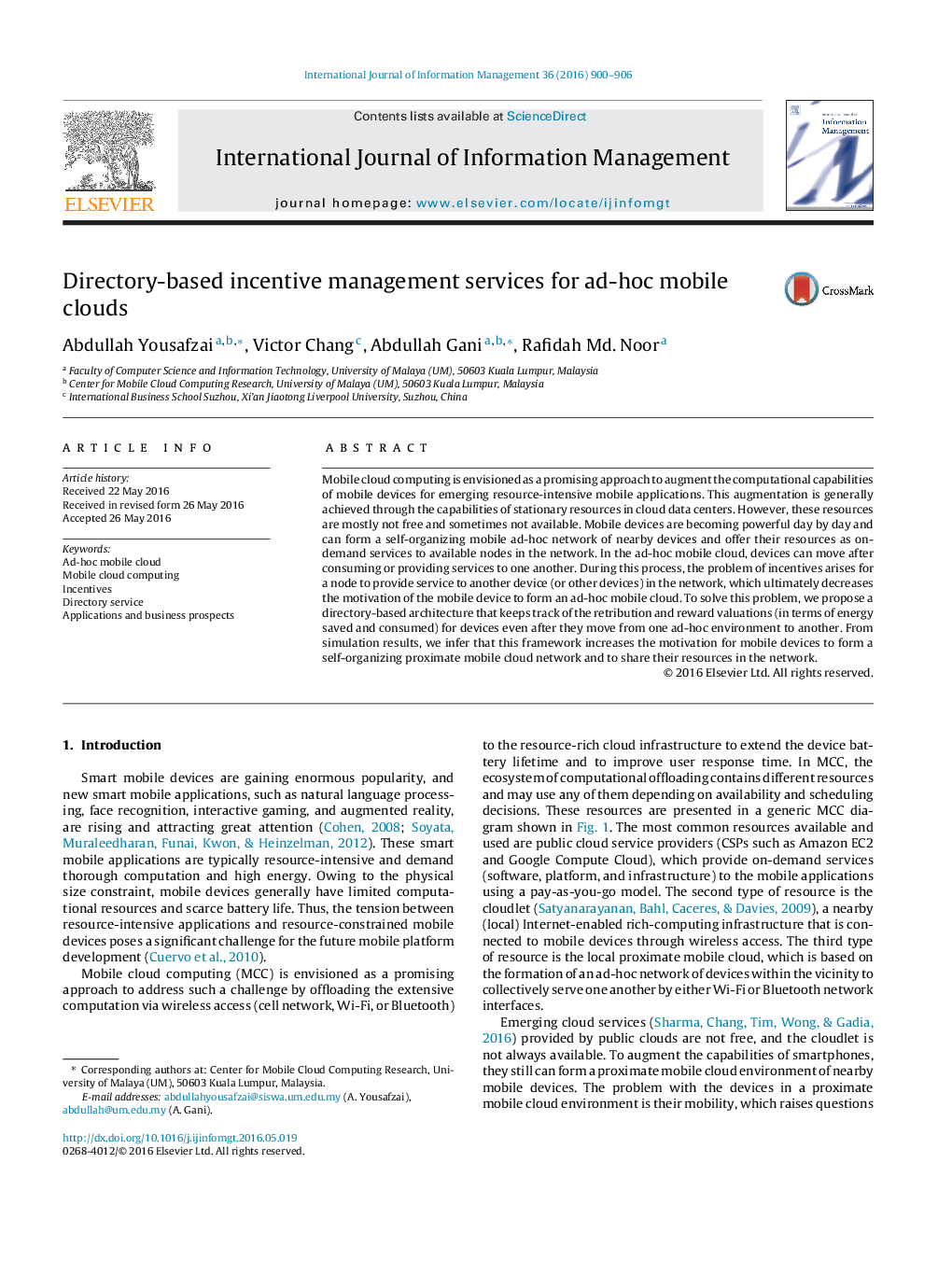| Article ID | Journal | Published Year | Pages | File Type |
|---|---|---|---|---|
| 1025458 | International Journal of Information Management | 2016 | 7 Pages |
•We present a directory based framework for incentives management of mobile device resources in ad-hoc mobile cloud environment.•We measure the incentives in energy consumption and energy saved not in Monterey bills.•We equalized the incentives using third party settlement of energy consumptions according to the directory valuations.•We present future application and business prospects utilizing the proposed framework.
Mobile cloud computing is envisioned as a promising approach to augment the computational capabilities of mobile devices for emerging resource-intensive mobile applications. This augmentation is generally achieved through the capabilities of stationary resources in cloud data centers. However, these resources are mostly not free and sometimes not available. Mobile devices are becoming powerful day by day and can form a self-organizing mobile ad-hoc network of nearby devices and offer their resources as on-demand services to available nodes in the network. In the ad-hoc mobile cloud, devices can move after consuming or providing services to one another. During this process, the problem of incentives arises for a node to provide service to another device (or other devices) in the network, which ultimately decreases the motivation of the mobile device to form an ad-hoc mobile cloud. To solve this problem, we propose a directory-based architecture that keeps track of the retribution and reward valuations (in terms of energy saved and consumed) for devices even after they move from one ad-hoc environment to another. From simulation results, we infer that this framework increases the motivation for mobile devices to form a self-organizing proximate mobile cloud network and to share their resources in the network.
Graphical abstractFigure optionsDownload full-size imageDownload as PowerPoint slide
